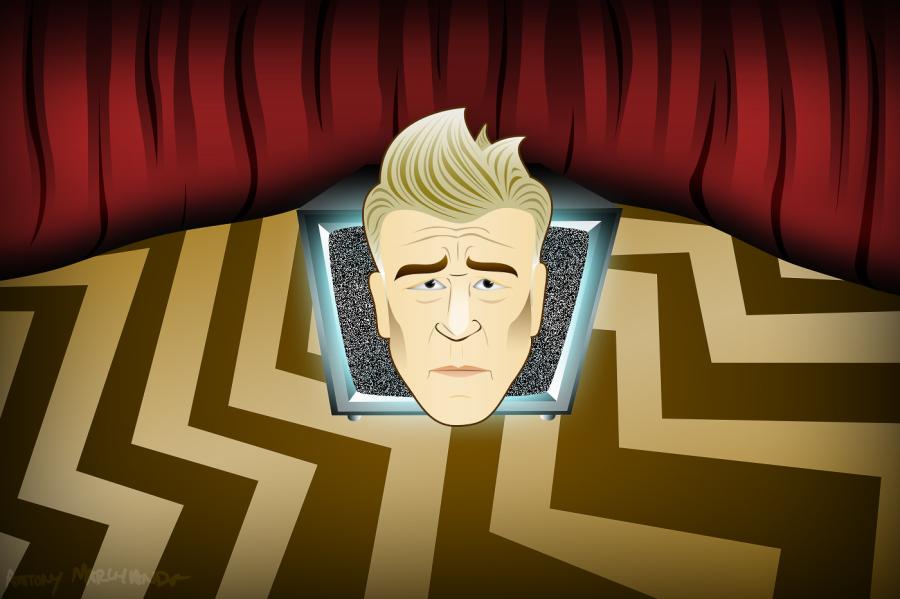It’s not a dream, but close. The world of Twin Peaks takes nightmares to an enhanced level of phantasmagoria.
Nestled in the quaint town of the Pacific Northwest, a hidden world of crime, demons and weirdness fill viewers minds with the greatest mystery story to have come to television.
Director David Lynch’s mind embodies something far beyond human form— it’s hard to even conceptualize him as an average person. It must be his brilliance and insanity that blend to create such a historical TV crime show like “Twin Peaks.”
While one could argue that shows like “The Killing,” “24” or even “The Sopranos” have had major impact as television dramas, it stands to be said that nothing compares to the oddities of the 90’s phenomenon.
The show is it’s very own world. Oddities are represented through random reoccurring zig-zag tiles and red curtains. Symbolism is heavily used in understanding the show. Lynch’s term for pain and sorrow, ‘garmonbozia’ is represented as creamed corn, while demons inhabit multiple bodies and owls are not what they seem.
Everyone is a suspect in the case of Laura Palmer’s murder— a beautiful, high school prom queen whose body is found in a plastic tarp within the first five minutes of the pilot episode.
The first episode is a film in itself. The two-hour long premiere devotes an immense amount of time developing characters, so much so that it becomes hard to remember all of them and their backgrounds.
There’s the slutty character, Audrey and her many problems that arise from complex daddy-issues, a log lady who has visions, the deranged mother of Laura Palmer and the brilliant special agent Dale Cooper— played by Kyle MacLachlan. Although extensive, the time spent on each person’s identity becomes vital to understanding the whole story’s premise.
“Twin Peaks” is a mark of Lynch’s psychological thrillers, alongside “Lost Highway” and “Eraserhead.” When a show scares someone enough to make them shower with the door open, the elements of fear are well delivered.
“Lost” is a show that tried to do this, and failed. The six-season series went for peculiarity but in the end, just confused many.
“The Killing,” an American crime drama also did something similar. Not to say that it completely failed, but I would never put it on the same list as Lynch and Co-director Mark Frost’s masterpiece.
To set it apart from other crime dramas, “Twin Peaks” did something unusual— the first few episodes laid everything out and made very crucial points about facts that were essential to unraveling the mysterious death of Laura.
And then BAM!
Almost midway into the second season, everything is explained. It all makes sense and comes together to create a story that had its audience in utter disbelief.
It seems that many shows out now play a very repetitive game. It starts with a murder or crime of some sort. Then there is a main suspect who is flushed out due to many others becoming suspects, all to go back to the original one. It’s pretty exhausting if you ask me.
Just like a scary movie seen in theaters, I want to be dangling off the edge of my seat the whole time. And not in one long, tedious spiral that has me yawning in the middle.
Lynch, who practices Transcendental meditation, says that it was just that that kept making the series so exciting. TM allowed Lynch to creep deeper into his subconscious and come up with scripts that blew the average person’s mind.
There are those that might prefer more shallow shows, like “Desperate Housewives” or “The Following” but those just tickle the surface of possibilities.
It has to do with listening and understand while watching “Twin Peaks.” A certain amount of attention is required to comprehend it— sometimes turning the subtitles on is helpful.
Television shows like this one are crafted. They are something not to be gulped down in one sip, but to be fully evaluated in the complexity of its true meaning.










